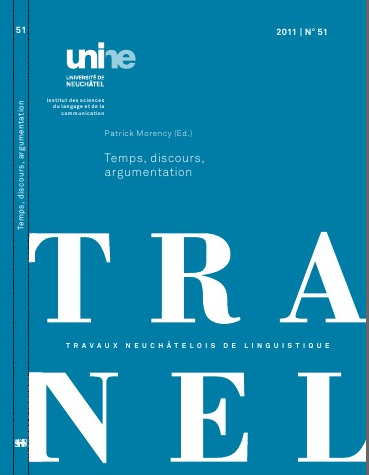Le temps comme degrés d'engagement épistémique
DOI :
https://doi.org/10.26034/tranel.2011.2773Résumé
This article addresses the question as to whether time is a primitive concept or rather is composed of conceptually more basic building blocks. After a brief analysis of tense-time mismatches with examples from English, Polish, Thai and Swahili, I present a hypothesis that time is conceptualized in terms of degrees of epistemic modality. Expressions with future, present and past reference are ordered on scales of epistemic commitment. I demonstrate that the theory of Default Semantics has no difficulty with representing tense-time mismatches in that it reflects the fact that information about temporality is conveyed via a variety of processes, some of them pertaining not to the processing of the lexicon or grammar but even to pragmatic inference. The theory also gives support to the thesis of time as modal detachment.Téléchargements
Publié-e
01-01-2011
Comment citer
Jaszczolt, K. M. (2011). Le temps comme degrés d’engagement épistémique. Travaux neuchâtelois De Linguistique, (51), 97–113. https://doi.org/10.26034/tranel.2011.2773
Numéro
Rubrique
Article thématique


